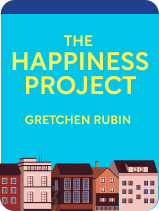

This article is an excerpt from the Shortform book guide to "The Happiness Project" by Gretchen Rubin. Shortform has the world's best summaries and analyses of books you should be reading.
Like this article? Sign up for a free trial here .
Do you feel happy and fulfilled in your job? If not, what aspects of your current job do you find unfulfilling? Why is happiness at work important anyway?
Happiness at work is crucial to life satisfaction because you spend so much of your life there. If you’re not happy at work, unhappiness will naturally take up space and touch other parts of your life. However, being in a happiness-boosting job naturally gives you a regular source of fulfillment, growth, socializing, and recognition.
In this article, we’ll explore different ways you can seek out more happiness at work.
Why Happiness at Work Matters
If you are in the right job given your talents and disposition, you can focus more on cultivating happiness at work by increasing your fulfillment, creativity, and efficiency. This is important because people who are happy at work perform better than unhappy people, for several reasons.
- You’re more likely to work more hours and think about your work outside of your regular workday.
- You’re more helpful and cooperative, and in turn, people are more helpful and cooperative toward you.
- People are more willing to work with you because happy people are less argumentative (but not less assertive), less vengeful, less prone to burnout, and more productive.
- The above factors combine to make you a better leader—people are more willing to listen to you because they perceive you as friendly, confident, and assertive.
How to Find the Right Work
Finding work that you’re enthusiastic about can be a huge boost in your professional life. Often, those who get far ahead in their professions are genuinely interested in what they do. This is because mastery of skill comes from your willingness to practice it—when you have a job that you like and willingly work to master, you gain a competitive advantage over those who are simply going through the motions of learning the work.
Finding the right work is at once simple and complicated: Just ask yourself what you do in your free time. Remember that what works for others might not work for you, and vice versa. Reflect on what activities you genuinely enjoy, and put aside activities that you’re merely pretending to enjoy because they seem prestigious or successful.
Rubin used this process to shift to her “right work.” For some time, she worked as a law clerk and liked the work enough, but didn’t spend any more time on it than was necessary. In her free time, she enjoyed working on writing books so she decided to become a writer.
Finding More Happiness in Your Work Life
Create more happiness at work using two key parts of the happiness formula: pursuing growth and finding more ways to feel good.
Pursue Growth: Leave Your Comfort Zone
Trying new things and challenging yourself at work is important to happiness for a few reasons. First, you earn the happy satisfaction that comes from tackling a new problem. Second, when you have a new experience, you have to put in extra mental effort to process it—which sparks deeper, more complex emotions and warps your sense of time to feel slower. In short, continually trying new things is an effective way to prevent your life from speeding by.
Third, with each challenge you tackle, you expand your definition of who you are. The more factors that make up “you,” the less reactive you are to threats to any one factor. For example, if you get a bad review on a book, you can still be proud of your progress as a French learner. Or, if you lose your job, you can still feel good about engagement on your popular blog.
There are three ways to meaningfully leave your comfort zone at work.
Method #1: Start a New Project
Start a project that aligns with what you already like to do. This project could look like writing a new book, taking classes to help you switch careers, or starting a club. In Rubin’s case, it was to start a blog about her happiness project. Once you know what your project will be, you’re better able to articulate it to others. This jumpstarts networking with people who have the same interests and ideas as you, which naturally generates helpful advice about how to advance toward your goals.
Not only does starting a project give you a sense of accomplishment, but it also creates a cycle of challenge. The further you get into the project, the more you’ll want to learn from it—and the more life-enriching novelty you’ll get out of it. For example, once Rubin started her blog, she constantly wanted to learn new skills such as adding pictures, refining the URL, and starting a podcast.
Method #2: Embrace Failure
When you’re growing beyond the limits of what you’re used to or what you know how to do, you’ll inevitably experience failure. There are three methods to approaching failure productively.
- Reframe your thinking. Instead of thinking of failure as a negative, think about how it’s necessary to growth and ambition. Tell yourself that failure is exciting because it signals that you’re doing something worth doing.
- Think of success. Remember that the risk of failure can bring rewarding success, but avoiding the risk of failure automatically disqualifies you from success.
- Think of continued happiness. Risking failure puts you in situations that can compound your happiness—for example, your project can help you build a network, discover new challenges, or find a more fulfilling career path.
Method #3: Create a Goals Group
When you’re challenging yourself and trying new things you’ll likely come to a point where you need help—don’t be afraid to ask for it. While “asking for help” might look different for everyone, one effective method is to form a group of people who are working towards similar goals. This gives you a safe place to put forth ideas, get feedback, and ask for advice.
Pulling together a group you can lean on for help has social benefits that touch other parts of your life as well.
- Working in a group gives you the social contact that most humans need for happiness.
- You build a space to talk through the work-related problems and hangups that your partner might not be fully equipped to field.
- Needing to report to others about your projects and progress keeps you accountable.
Find Ways to Feel Good: Change Your Mindset
Along with finding opportunities for challenge, focus on changing your mindset in ways that will make you consistently feel more productive and calm.
Make Your Workday Calmer and More Efficient
The best way to structure your day as productively as possible is to examine what you’re already doing. This can help you find places where you might be wasting time, identify distractions, or even find that your workflow looks nothing like you imagine it does. There are two ways to better structure your workday, without drastically changing it.
- Find your productivity system. Take notes every day about what you accomplished, paying attention to when and how the work got done. Identify your most productive habits, and replicate them daily. This creates a workday that works alongside your natural tendencies. For example, you might find that you work best in the afternoon. Or, you may find that taking a short break every two hours guarantees peak productivity.
- Do 15-minute challenges. When you find yourself with a 15-minute block on your hands, see how much you can get accomplished in that time. You might write a few emails, outline your work for the afternoon, or outline a page of an essay. Fifteen minutes doesn’t seem like enough time to get any significant work done by itself, but it quickly adds up and multiplies productivity.
Stay Present
One of the most important—but most difficult—ways to be happier in your work is to appreciate and enjoy where you are now instead of constantly looking at the future. Many of us fall victim to the “arrival fallacy”—the idea that when you “arrive” at an imagined destination, you’ll be happy. But, once you arrive, you’re not nearly as happy as you thought you’d be, for three reasons:
- You’ve already spent so much time imagining the destination that it’s already been included in your overall happiness.
- When you achieve a “level up”—such as having kids or buying a house—it usually creates responsibilities or worries that weren’t included in your original vision.
- Once you achieve a goal, you’ll find even larger goals to be conquered and focus on where you still need to go.
It’s possible to work against the arrival fallacy if you remember that your growth and current challenges are just as important to your happiness as the destination. This line of thinking creates a sort of “protection,” in two ways:
- If you enjoy the “now” part of the process, you’ll ultimately be happy regardless of whether you succeed or not. When your happiness doesn’t rely on future success, you can take failure in stride more easily.
- You’re free from the fear of criticism. If you enjoy the process, you care less about the outcome and how it’s perceived. It’s impossible to please everyone—it’s more worth your time to do what’s important and enjoyable to you than worry about if people won’t like it.
The Tricky Relationship Between Ambition and Happiness
Many people think that ambition and happiness can’t coexist—if you’re happy, you must be at the end of your ambition and if you’re ambitious, you can’t be happy where you are. There’s not a conclusive scientific response to this—some studies show that discontent leads to higher ambitions, while other studies suggest that happy people can think in complex, interesting ways that push them to the top.
In Rubin’s experience, being happy allowed her to be more receptive to criticism and failure, pushed her to take risks, and drove her to ask others for help—whereas being unhappy often made her defensive, afraid to ask for help, and self-limiting. It’s unclear how ambition and happiness directly feed one another, but it’s safe to say that happiness is important as it allows you to act in ways that open us up to advancement, ambitious actions, and important connections.
Reflect: Finding the Right Job
Because you spend so much of your life at work, being in a job that feels right for you is an important step in your happiness journey.
What about your current job feels unfulfilling for you? (For example, there’s not enough contact with other people, or you’d prefer working with your hands to working on a computer.)
What do you enjoy doing in your free time? (For example, trying new restaurants, journaling, gardening, and so on.)
How might you create work that feels right for you out of your free time activities? (For example, you might write articles for food magazines, or start a small gardening business.)
Reflect: Maximizing Happiness at Work
When you examine your workday, you’ll likely find small ways to streamline it and make it more enjoyable.
Describe what you think your workday should look like.
What patterns have you noticed about your productivity? That is, what does your workday actually look like? (For example, you work best in the late afternoon, or you always get distracted for at least 30 minutes if the phone rings.)
What tweaks can you make to your workflow to work with your productivity patterns? (For example, you do emails in the morning and save your deep-thought work for the afternoon. Or, you wear noise-canceling headphones so you don’t hear the phone ring.)

———End of Preview———
Like what you just read? Read the rest of the world's best book summary and analysis of Gretchen Rubin's "The Happiness Project" at Shortform .
Here's what you'll find in our full The Happiness Project summary :
- How to increase the overall happiness in your daily life
- Why changing everything won't bring you happiness
- How to create your own year-long happiness project






